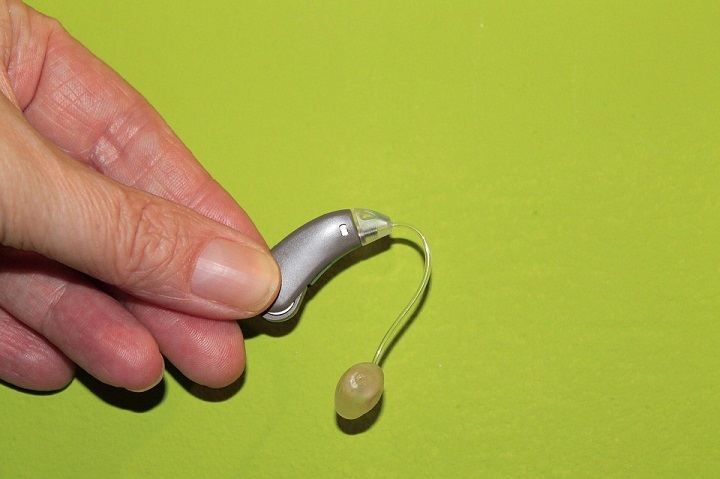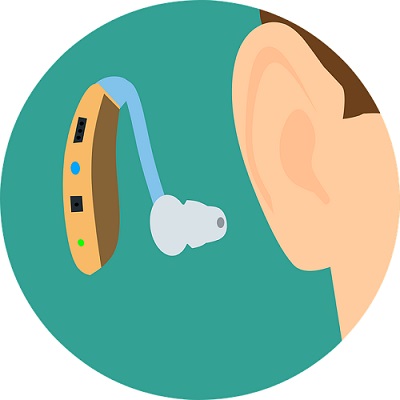If you’re one of the millions of people who suffer from hearing loss, you know how it can affect every aspect of your life. Hearing aids are the most common form of treatment, but they’re not perfect. Here are six things you need to know about hearing aids before deciding whether or not to get them.
1) There’s no one-size-fits-all solution
Hearing aids come in all shapes and sizes, and what works for one person may not work for another. That’s why it’s important to consult with a hearing specialist to find the right fit for you. When thinking about hearing aids, you’ll also need to decide if you want a behind-the-ear (BTE) device, which is larger and sits outside the ear, or an in-the-ear (ITE) device, which is smaller and fits inside the ear. For example, people with active lifestyles may prefer a BTE device because it’s less likely to fall out.
On the other hand, people who are concerned about their appearance may prefer an ITE device because it’s more discreet. There are also middle-of-the-road options, like in-the-canal (ITC) devices and completely-in-canal (CIC) devices.
2) They can help you hear better, but they won’t restore your hearing to normal
Hearing aids can amplify sound, which can make it easier for you to hear. However, they won’t make your hearing perfect. In some cases, you may still have trouble hearing even with a hearing aid. Additionally, hearing aids can sometimes make sounds seem louder or higher-pitched than they actually are.
Also, keep in mind that hearing aids can’t stop the progression of hearing loss. They may help you hear better in the short term, but eventually, you may need to get a new hearing aid or try another form of treatment.
3) They require some maintenance
Hearing aids need to be cleaned regularly and the batteries need to be changed frequently. Depending on the type of hearing aid you have, you may also need to have it professionally serviced from time to time. This can be a bit of a hassle, but it’s important to keep up with the maintenance in order to get the most out of your hearing aid.
For example, if you don’t clean your hearing aid regularly, earwax can build up and cause the device to stop working properly. Additionally, if you don’t change the batteries frequently enough, the hearing aid may not be as loud as it should be.
4) They can be expensive.
Hearing aids range in price from a few hundred dollars to several thousand dollars. Additionally, you may need to pay for professional services and repairs on top of the initial cost of the hearing aid.
If you’re concerned about the cost, there are a few ways to save money. Some insurance plans cover the cost of hearing aids, so be sure to check with your provider. Additionally, many organizations offer discounts for seniors and people with low incomes.
5) They come with a learning curve
Hearing aids can take some time to get used to. At first, you may find that everything sounds different, and it can be difficult to adjust to the new noise level. Additionally, you may have trouble understanding conversations if there’s a lot of background noise.
However, with time and practice, you should be able to get used to your hearing aid. There are also a few things you can do to make the adjustment period easier, like attending a hearing aid orientation or participating in counseling sessions.
6) There are other options
If you’re not ready for a hearing aid, there are other treatments that can help you cope with hearing loss. For example, you could try using a personal amplifier or learning sign language. Additionally, there are a few surgical options that can help restore hearing. For example, cochlear implants are a type of surgically implanted device that can help people with severe hearing loss. Additionally, there are a few types of hearing aids that don’t require surgery, like bone-anchored hearing aids.
There are many different types of hearing aids, and they all have their own unique benefits and drawbacks. It’s important to do your research before you decide which type of hearing aid is right for you. Additionally, be prepared for a bit of a learning curve when you start using your new hearing aid. With time and practice, however, you’ll be able to get used to the new device and hear better than ever before. Keep in mind that hearing aids won’t restore your hearing to normal, but they can make a big difference in your quality of life.



















